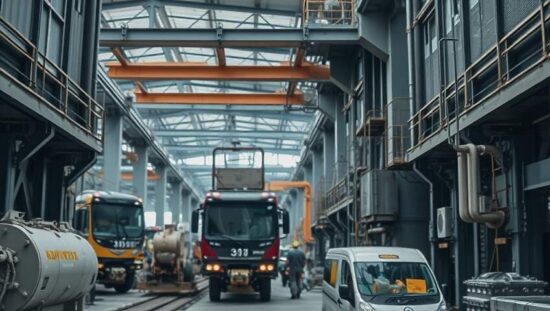German industrial giant Thyssenkrupp and other steel producers are facing a precarious future, prompting urgent calls for government intervention ahead of a crucial summit convened by Chancellor Friedrich Merz next week. The powerful IG Metall trade union is intensifying pressure on the coalition government to swiftly implement the promised “Industriestrompreis” a subsidized electricity rate for energy-intensive industries, by January 2026.
Jürgen Kerner, Deputy Chairman of IG Metall, warned in an interview with the Rheinische Post that the lack of concrete timelines for the subsidized rate is actively hindering vital investment decisions within the steel sector. He cautioned that failure to deliver this measure will likely trigger a wave of job losses, impacting tens of thousands of workers. His stance aligns with that of the Federal Minister for Economic Affairs, signaling a shared concern within the government regarding the declining competitiveness of German steel production.
Beyond electricity pricing, Kerner is also demanding robust trade protection measures, specifically advocating for the German government to forcefully champion the European Commission’s current plans for enhanced trade safeguards. He argues that a decisive and effective shield against unfair imports, especially from China, is now essential for the survival of the German steel industry. Critics argue that previous measures have been insufficient and a stronger, more assertive stance is needed to counter subsidized Chinese steel production that is undercutting European firms.
Further compounding the challenges, IG Metall is pressing for the stringent application of “local content” stipulations regarding the deployment of funds allocated within the government’s special asset fund, intended for public infrastructure projects. Kerner insists these billions should directly benefit domestic steel manufacturers, moving beyond mere reliance on public tenders to incorporate broader requirements for the use of locally produced steel. This reflects a growing debate over prioritizing national industrial champions and safeguarding European value chains, even if it means potentially higher costs for infrastructure projects.
The upcoming Stahlgipfel promises to be a pivotal moment for the German steel industry – a test of the government’s commitment to balancing economic competitiveness, social responsibility and the pursuit of a robust, resilient and locally-rooted industrial base.





